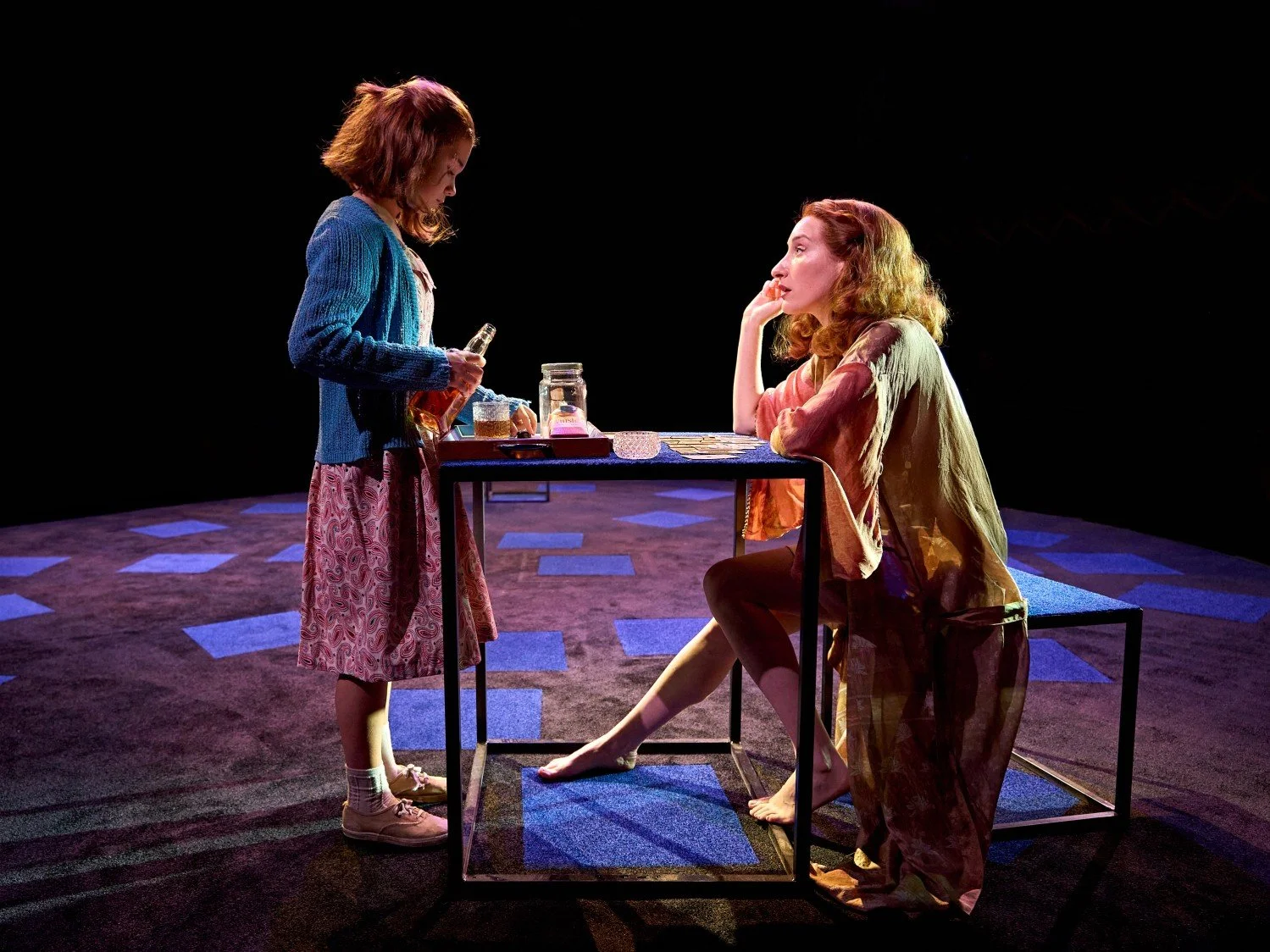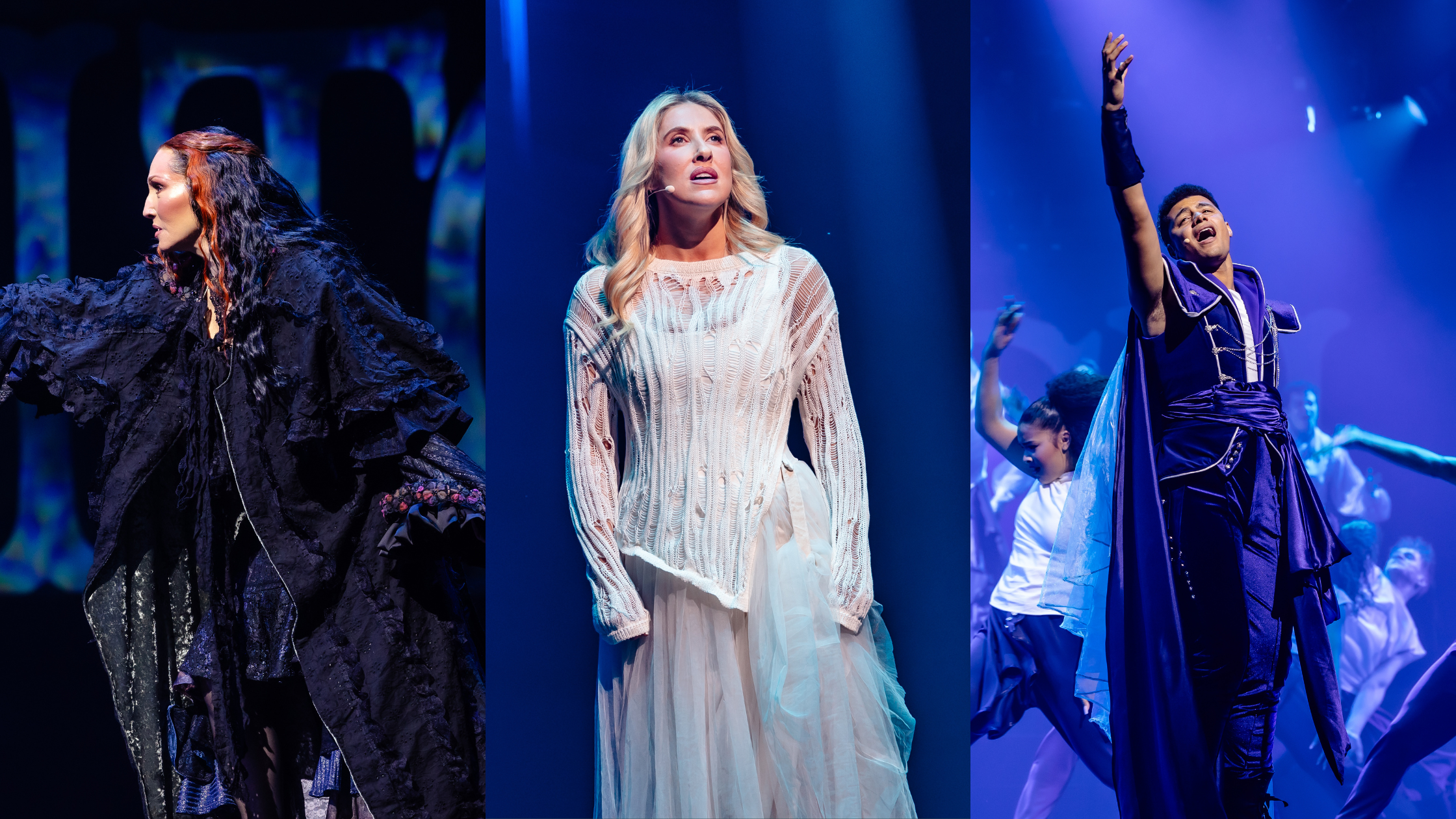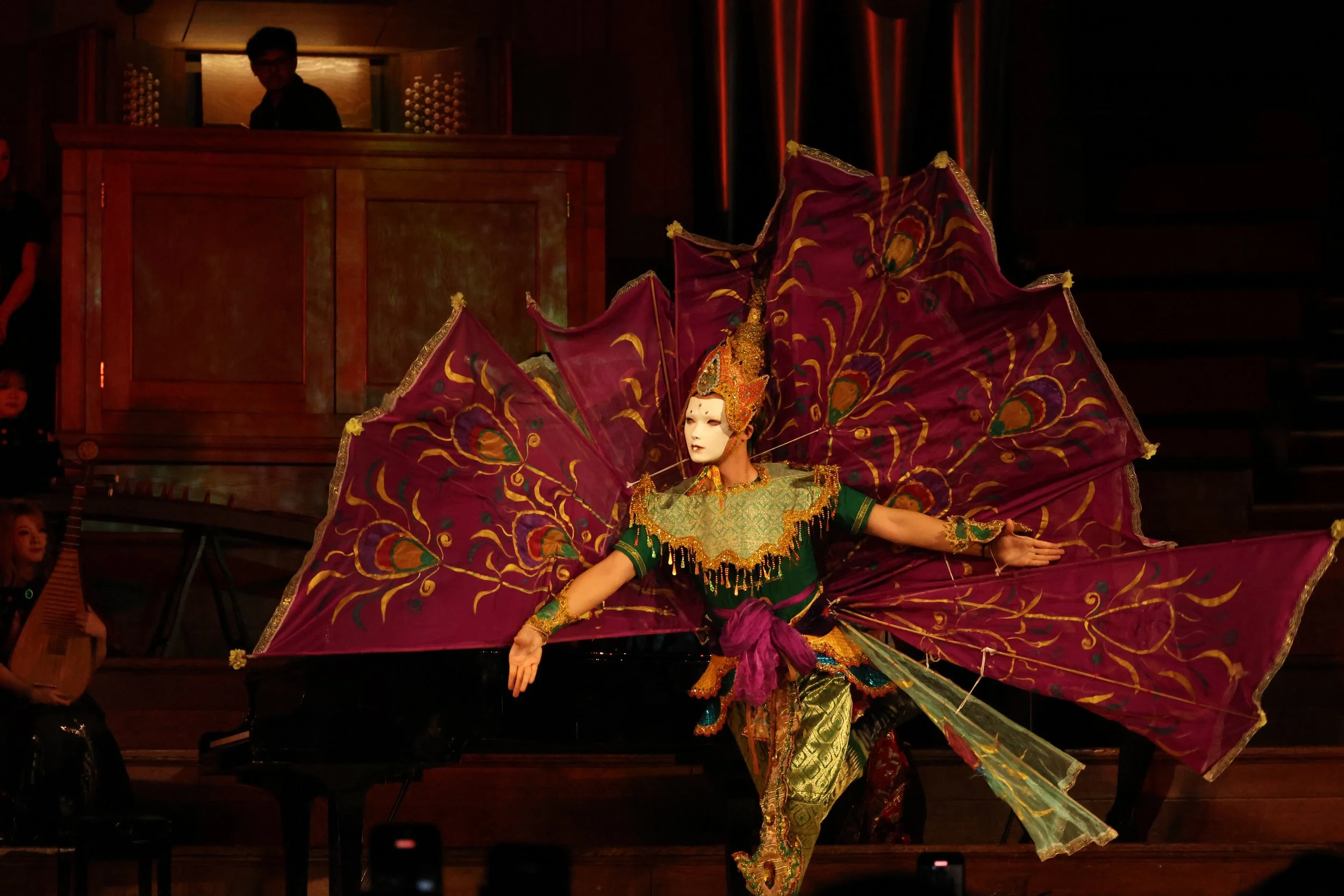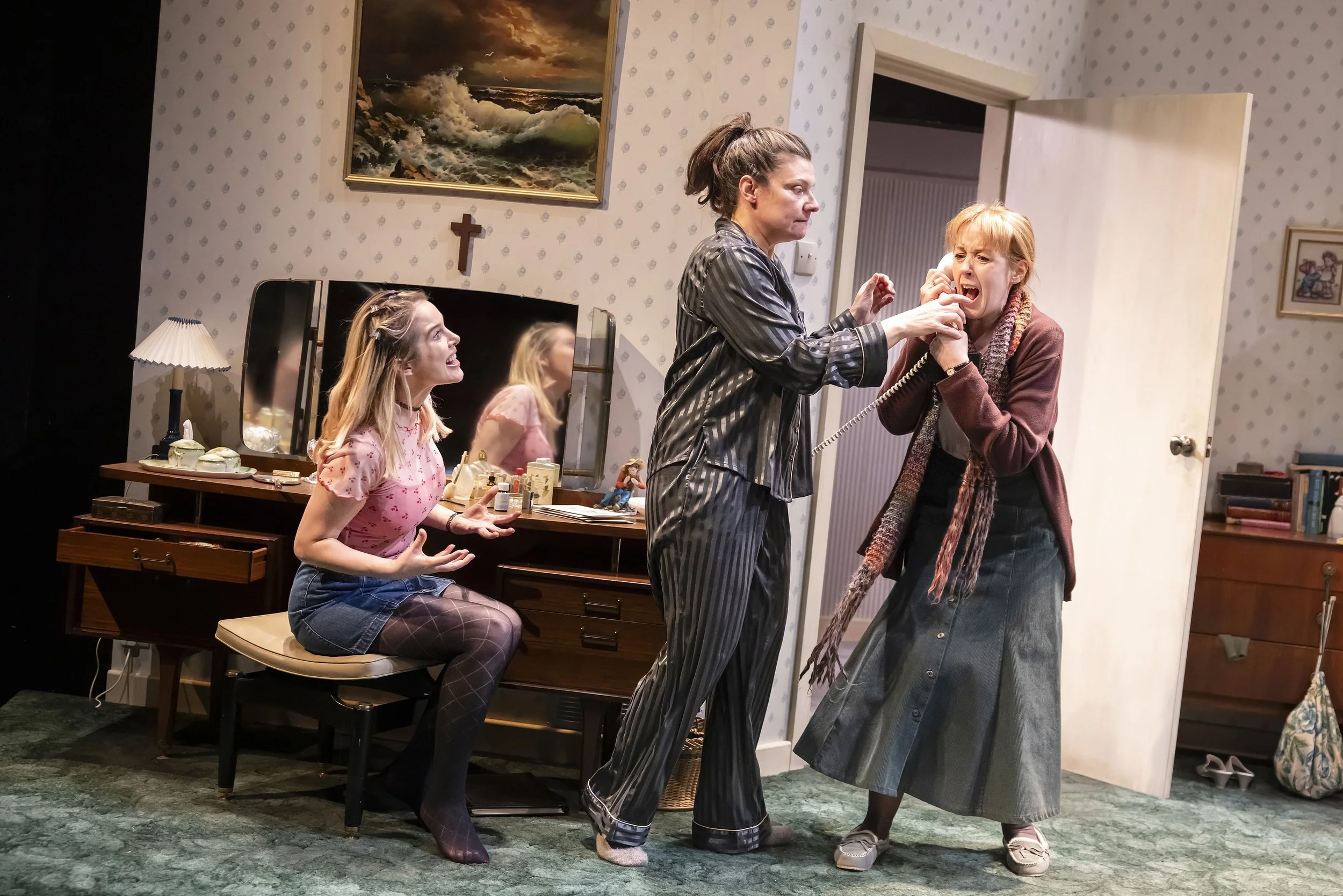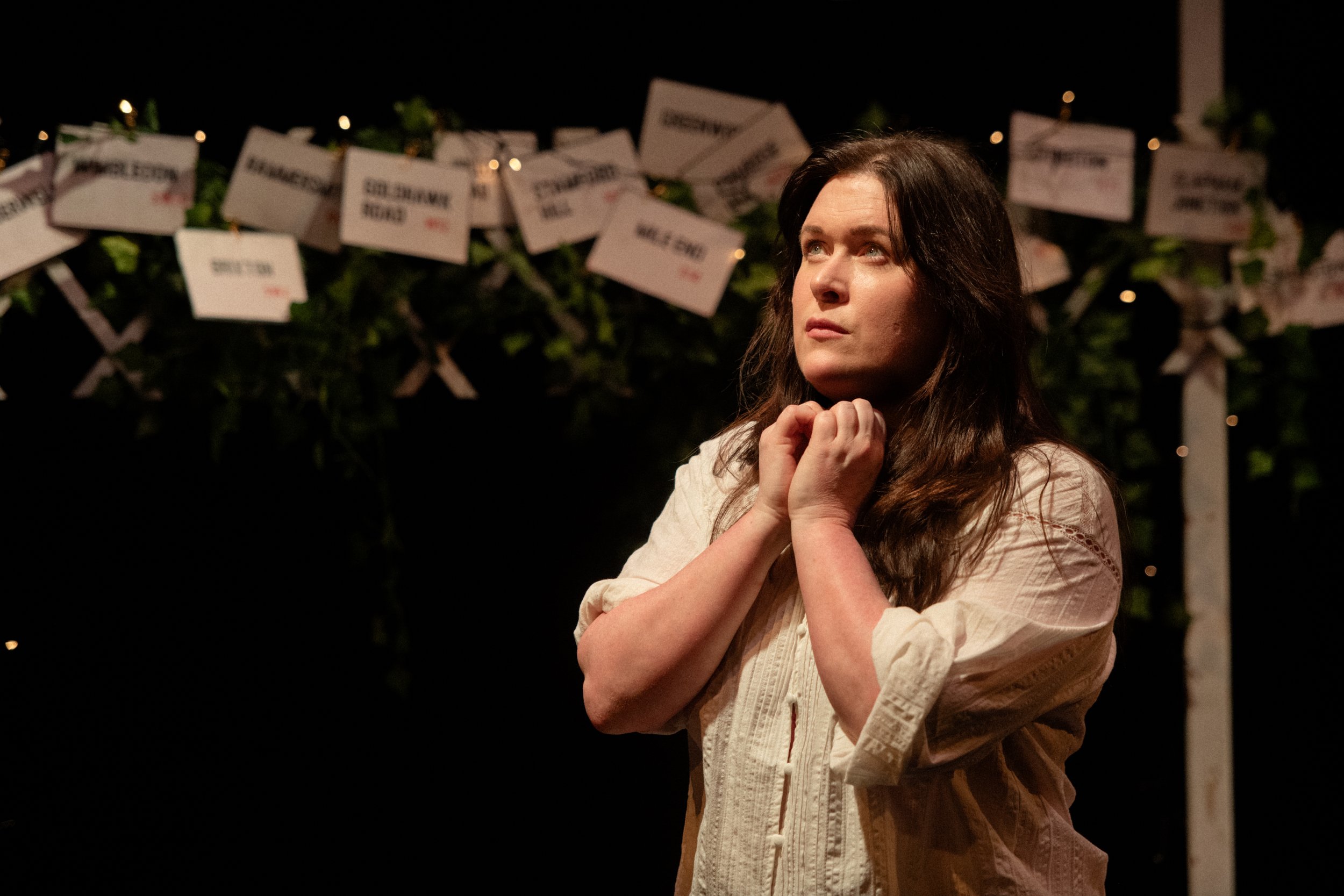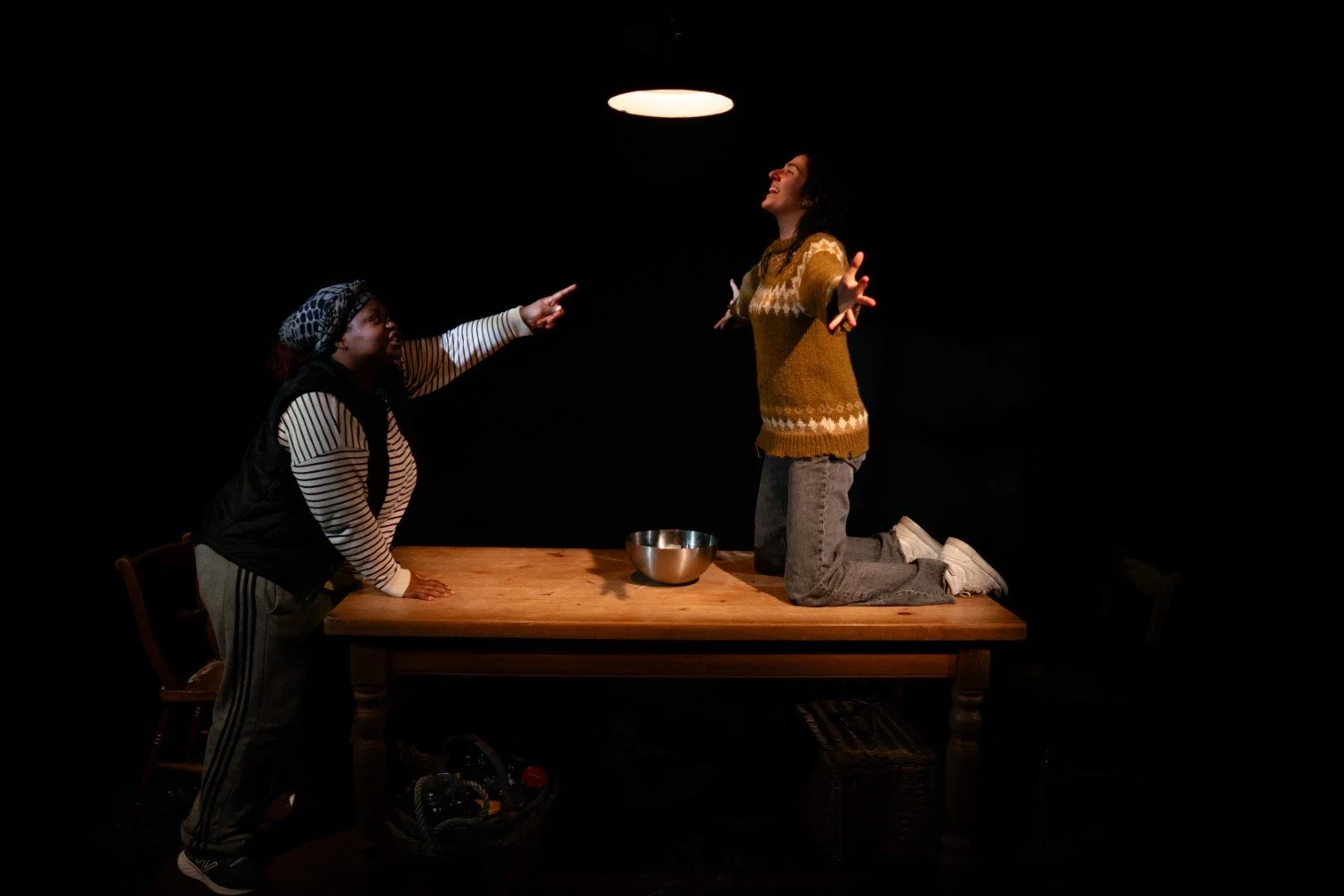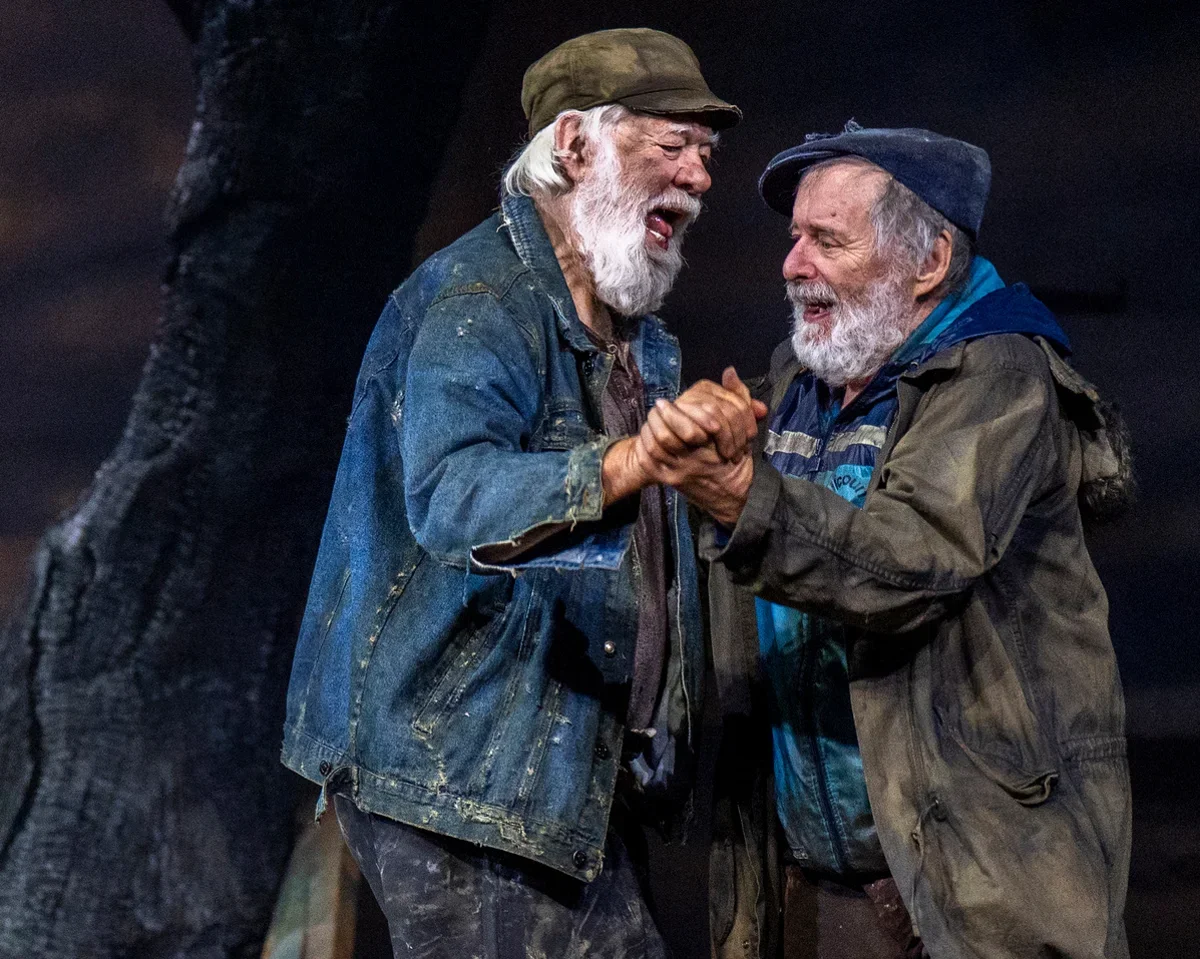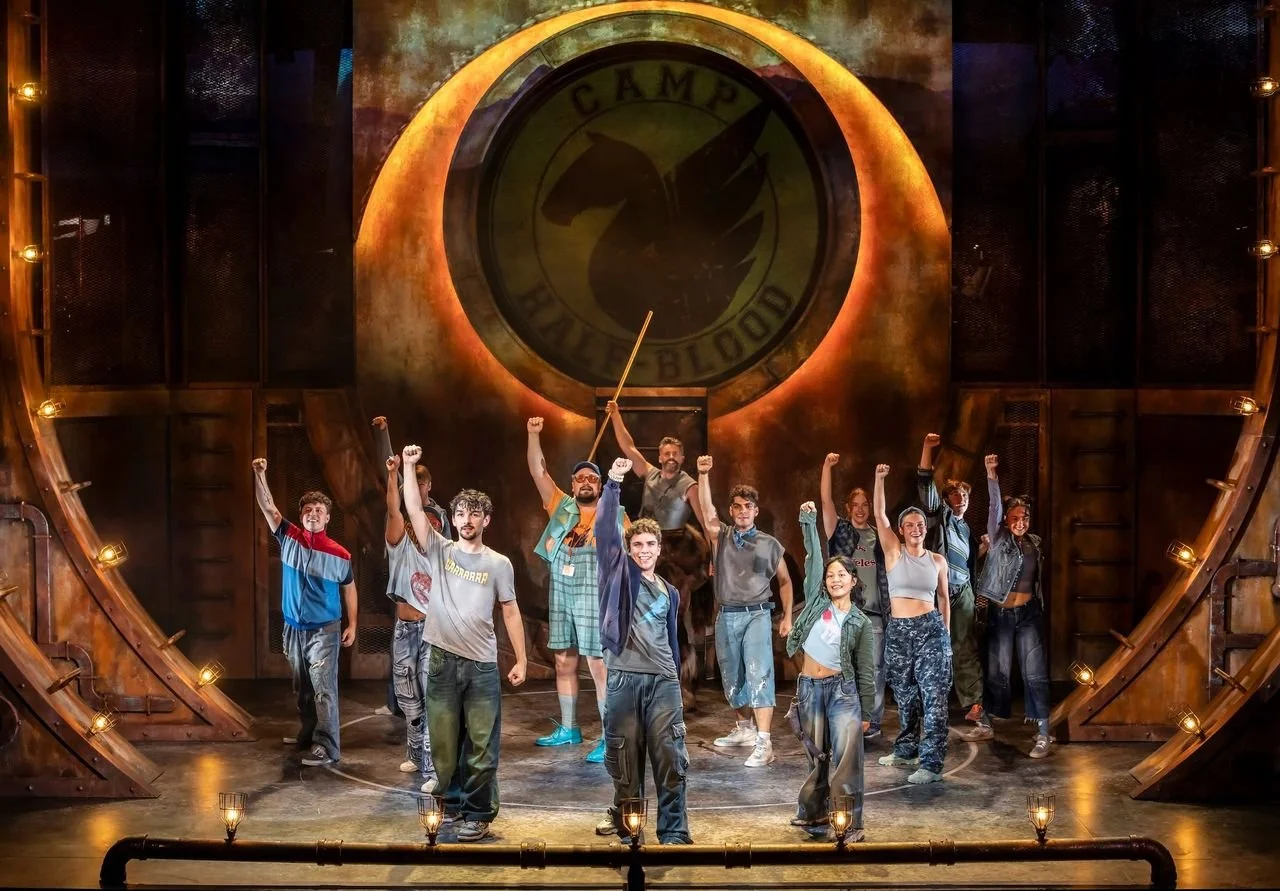Mary Page Marlowe at Old Vic Review
Written by Penny for Theatre & Tonic
Disclaimer: Gifted tickets in exchange for an honest review
The blurb on the Old Vic website sums the UK premiere of this play by Pulitzer Prize-winning playwright Tracy Letts as “90 minutes. 70 years. 11 scenes. 5 Marys. 1 extraordinary life”. It’s a deceptively simple description that belies the complexity of a story that doesn’t follow a linear timeline and has five formidable actors playing the titular role, amongst them Academy Award winner Susan Sarandon, making her UK stage debut.
As the scenes do not run chronologically, the audience is asked to piece together Mary’s story from the fragments of memory that we are shown by the five actors who play her at various life stages.
In the character of Mary Page Marlowe, Letts has given us an ordinary woman with recognisable human flaws, trials and tribulations. As the scenes unfold, revealing the layers of Mary Page’s life, a clear timeline for her personal history becomes clear. With bad decisions clouding her relationships and behaviour her path in life feels inevitable from the start. Although the play has a lot of focus on the more tragic elements of Mary Page’s life, there is still plenty of humour throughout, deftly offsetting the heavier side of the drama.
The play is staged in the round with space design from the Old Vic’s Dominic Fraser and set and costume design from Rob Howell. Although there is not a traditional set to speak of, the use of simple pieces of furniture and props effectively transports us to various locations like a café, a hospital, a home – putting the focus firmly on the actors who tell Mary’s story. Scene changes are efficient, swift and smooth, carried out in near blackout and accompanied by appropriate classical music that makes these transitions feel like a part of the time-shifting story rather than a pause in the action.
The five versions of Mary Page that we meet are at very different stages in life, their physical resemblance is in their auburn hair – at times sleek and shiny, at others messy and dishevelled. This styling along with the costumes gives a hint as to the decade we are in as well as an idea of Mary’s self-image at each life stage.
Under the strong and clear direction of Matthew Warchus, the Old Vic’s Artistic Director, the story feels accessible despite its disjointed nature. He has brought fantastic performances out of this truly ensemble cast. The scenes are all very natural, whether we are seeing the youthful optimism of 19 year old Mary (Eleanor Worthington-Cox) in her college dorm room, Mary the seductress (Rosy McEwan) cheating on her husband with her boss, or the angry older Mary (Andrea Riseborough) struggling with all sorts of demons in a powerful physical performance
The five actors playing Mary Page are all excellent, but as the youngest and oldest incarnations, Alisha Weir and Susan Sarandon absolutely shine. They both bring a stillness to their portrayals in scenes that frame the story, with a real depth to their performances. Weir’s single scene sees her with her mother, played with brittle fragility by Eden Epstein, and it is clear from their relationship that we are seeing patterns that young Mary Page will be doomed to repeat. Sarandon has a formidable presence, showing us through her demeanour and interactions that she is an older and wiser version of Mary, changed by the experiences that have affected her life.
Other significant figures in Mary Page’s life are played by an excellent supporting cast, notably Melanie La Barrie as a nurse full of warmth and wit, Clare Hughes as Mary Page’s daughter Wendy, moving from teen angst to young adulthood, and Hugh Quarshie as a rare positive male figure, full of gentle charm.
In a thought-provoking scene with her therapist (Lauren Ward) we see McEwan’s 30-something Mary Page questioning who she is, speculating “I’m not the person I am … I’m just acting”. It is up to us, the audience, to work out which, if any, Mary Page is real or is her whole life an act – the mother, the lover, the working professional, the angry drunk, the optimistic dreamer or the lonely child.
But can a life be summed up in eleven scenes? Are these snapshots Mary Page’s memory or the memories of the other people in her life – husbands, lovers, children, therapists? It’s a complex tapestry and there is still a sense, even as the play reaches its conclusion, that we still don’t know who Mary Page Marlowe really is. That ambiguity is perhaps a little frustrating, but it is a rather fitting ending to a story based on subjective memories. The story is no less compelling for this ambiguity as the writing, direction and performances draw you in right from the start, and as the layers peel away to reveal more and more about our protagonist, our empathy and understanding grows with each revelation.
The play runs for an hour and forty minutes without interval but feels much shorter and never drags. Jumping between scenes of youthful camaraderie, raw emotion, denial, soul searching but never regret, it’s a powerful story of a life, structured in a way that allows the audience to understand and even empathise with its flawed central character.
Mary Page Marlowe runs at the Old Vic until 1st November 2025. Find out more and book tickets here.
★ ★ ★ ★

